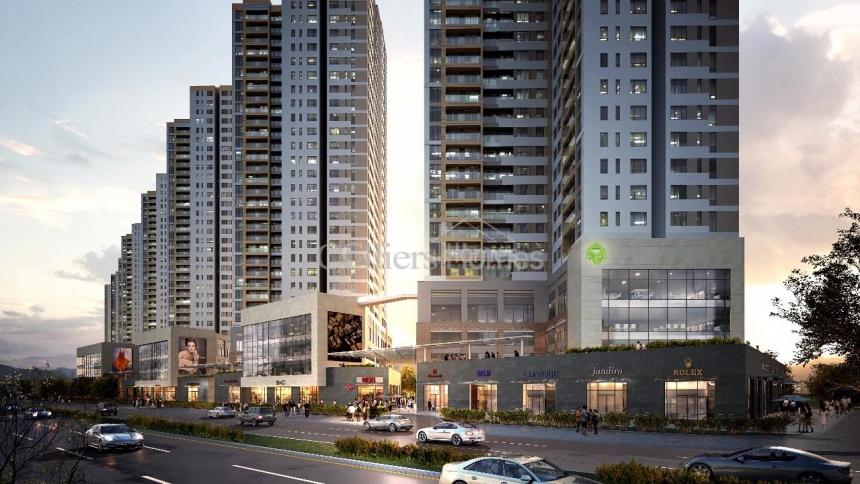
1. Know your budget. For me, this is the most important step. At the moment, a decent fully furnished 1-2 bedroom apartment is rented out between 500-800USD (ideal for singles or couples without kids); for families, a 3-bedrrom unit ranges from 800-1,200USD in Phu My Hung and a hundred or two higher wherever near district 1. Take note that on top of the monthly rent, you need to spend at least 150USD more for the utilities (electricity, water & gas, plus the Admin Fee). I also know some expats who prefer top-of-the-line accommodations which range from 1800 to 3000USD.
2. Know your options. There are many options and generally, more expats in Saigon prefer the apartments over houses . While it’s possible to get a three- story house with the prices I’ve mentioned, my personal preference is the apartment.That’s probably because I have kids and security is my top priority. There are also rooms for rent; fully furnished ones can be between 300-400USD a month. And of course there are many hotels (a.k.a. guest houses) in Saigon where you can pay 300/month inclusive of cleaning & laundry. Plus the serviced apartments downtown, which are just a stone’s throw away from almost everything!
3. Know your priorities. Being a family man, security is my number one concern. I make sure the place has a CCTV and a staff monitoring the IN and OUT of people in the apartment. My old apartment even had a very tight security system: magnetic card is given to tenants & guests are interrogated by the uniformed men before allowed entry. You don’t have this luxury when renting a house though. You don’t wanna know about the horrible stories of my expat friends and locals about burglary but this doesn’t always happen. Rooms for rent, generally, are safe as the landlord always monitors the house but some of them do this too much.
4. Know your neighborhood. Is it near an expat-friendly hospital or clinic? Is there a supermarket or grocery nearby? Is it easy to get a cab or xeom there? These are among my first questions. Knowing your neighbors (expat or locals) also does matter for me. I have no preference as to the race of my neighbors but I really don’t like hearing the off-tune karaoke and yelling past midnight. If you’re single, your questions might be: is it near pubs or cafes? Can I jog at a park nearby? Is there a yoga/karate/football gym nearby? You can have them all if you live in Phu My Hung or An Phu.
5. Know what facilities and amenities there are. Most apartments in Phu My Hung have a swimming pool, a garden, and a parking area. Some have extras: a gym, a function hall, and/or a lobby. This is also true in many apartments in districts 2, 4, 5 & 10 but rarely in district 1 due to limited space. 9 out of 10 houses do not have a parking area for your motorbike though. That is why most expats renting a house make their ground floor a living room/ garage. Note that in Vietnam, a fully-furnished accommodation means beds & mattresses, wardrobes & cabinets as well as bookshelves, dining and living room sets, curtains, washing machine, fridge, stove, microwave oven, telephone, ADSL and cable TV are provided.
6. Know the contract details very well. Most landlords require two months’ deposit and 1 month advanced rent. I had managed to seal deals with just 1 month deposit & 1 month rent but it is getting rarer nowadays as more and more expats have become too nomadic these days. All contracts must be both in Vietnamese and English but make sure to have a Vietnamese friend look at the contract before you sign it. Last but not the least, the contract should secure you from the sudden change of mind by the landlord. You don’t wanna pay more while the contract is in effect nor do you like to move out because a richer tenant likes your place.
I hope these six tips can help you in any way. If you have any questions or seek an advice about renting a place, I would be more than happy to assist you in any way I can. You can start by leaving a comment below.
